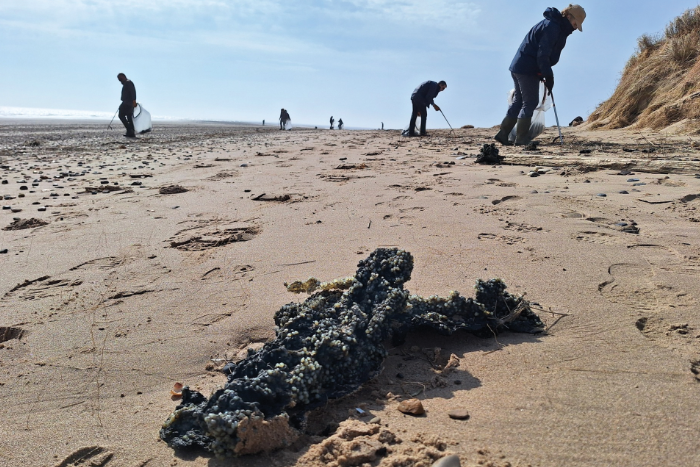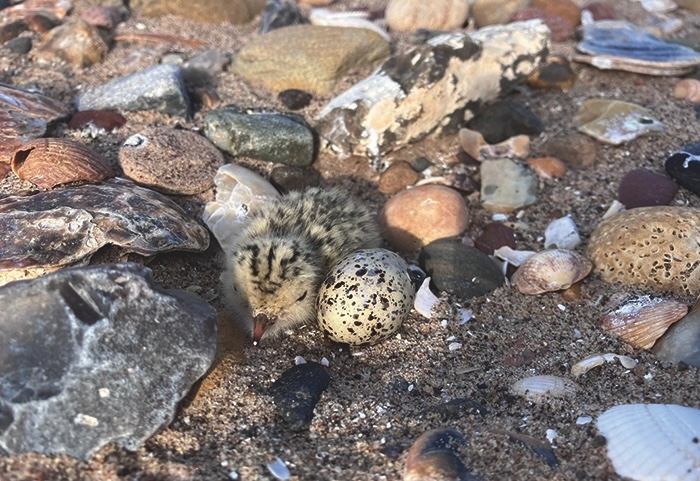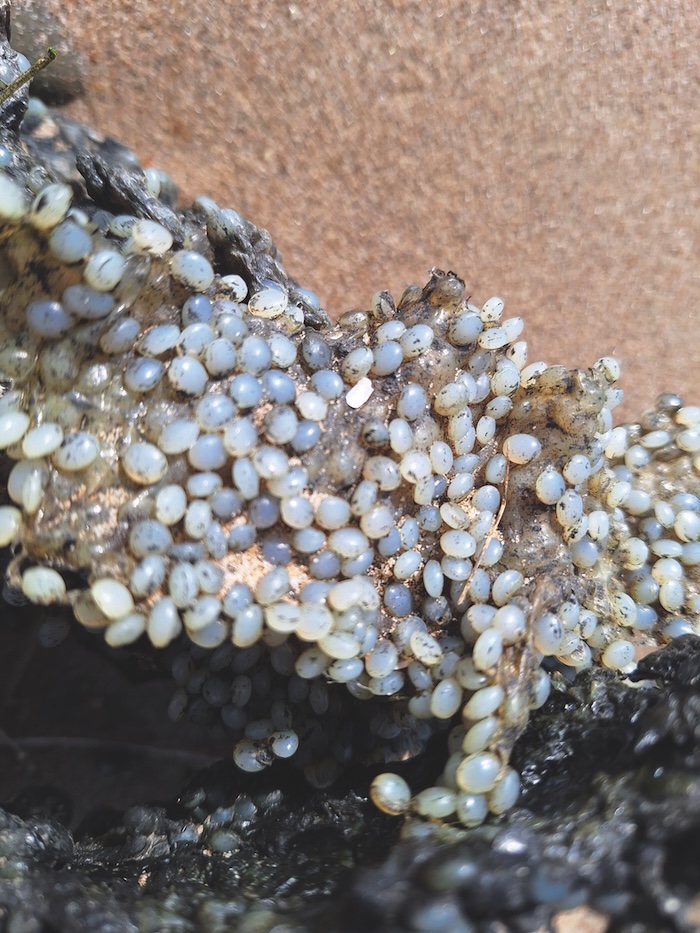
Nurdles – major source of plastic pollution
By Rachel Shaw
Lincolnshire Wildlife Trust
I think we’ve already found our word of 2025 at the Lincolnshire Wildlife Trust.
The word is nurdle. It is indelibly marked in the collective memory of the Lincolnshire Wildlife Trust. For anyone that hasn’t come across it before, a nurdle is a small plastic pellet about the size of a lentil. They are the basic building blocks of most of the plastic products that we use.
I have to admit, until this year, I hadn’t given nurdles much thought. I knew of their existence and I knew they were a problem on beaches and in watercourses around the world. But Lincolnshire, as far as I knew, remained relatively nurdle free.
That was until March 2025 and the collision of the two ships in the North Sea. This may seem like a distant news story but the legacy of the collision lives on and we will continue to feel its consequences for many years to come because in the cargo of one of the ships included nurdles.
In the efforts to put out the fires on-board, vast quantities of nurdles burnt and melted together. These burnt clumps, as well as loose still lentil-sized nurdles, were washed into the sea.
Plastic nurdles potentially carry toxic chemicals and they look a lot like fish eggs, which the birds and other marine animals are very likely try to eat.
At Gibraltar Point, on the Lincolnshire coast just south of Skegness, the Lincolnshire Wildlife Trust have a shorebird sanctuary. It’s a fenced off area where some of our rarest birds – little terns and ringed plovers – nest.
In late March, the birds were arriving from their wintering grounds and preparing to nest. The nurdles were heading in their direction. The race was on to collect and remove as many nurdles as possible.
Fast forward to late summer and we were delighted to see some of our regular volunteers on the coast recognised with a Marsh Volunteer Award for Marine Conservation.
The awards, a partnership between The Wildlife Trusts and The Marsh Charitable Trust, recognise the amazing work Wildlife Trust volunteers carry out across the UK to help save our seas.
Our Lincolnshire volunteers were nominated for their work clearing plastic nurdle pollution off the beaches at Gibraltar Point and within the Lincolnshire Coastal Country Park.
Their quick response to our urgent callout in the aftermath of this disaster helped to make the shorebird sanctuary at Gibraltar Point as safe as possible ahead of the critical nesting season.
Along with Lincolnshire Wildlife Trust staff, partner organisations and members of the public passionate about our coastal wildlife and environment, they helped to remove more than 16 tonnes of nurdles.
It was an incredible effort from everyone and one which we are hugely grateful for and it was wonderful to be able to formally thank the volunteers this summer. The birds nesting in the sanctuary area at Gibraltar Point have also had a good summer. Little terns, ringed plovers and oystercatchers have all hatched chicks.
Collecting litter can sometimes be a thankless task but if you have ever paused to pick up a discarded bottle, plastic bag or sweet wrapper, or if you’ve purposefully headed out with a litter picker – thank you.
These actions really do make a difference. Collectively, just think about how much litter you’ve all safely removed from the environment. To my mind, you all deserve an award.

Pictured above is one of this year’s little tern chicks born safely on the county coast. Phot taken under licence by Shorebird Warden.
Pictured below is the clean up-up operation with a nurdle cluster in the foreground and a close-up shot of the lentil sized nurdles.

